
Beneath the frigid waters of Antarctica’s western Weddell Sea, in one of Earth’s most remote and least-explored corners, a remarkable world has come to light. Beneath an ice…


Beneath the frigid waters of Antarctica’s western Weddell Sea, in one of Earth’s most remote and least-explored corners, a remarkable world has come to light. Beneath an ice…
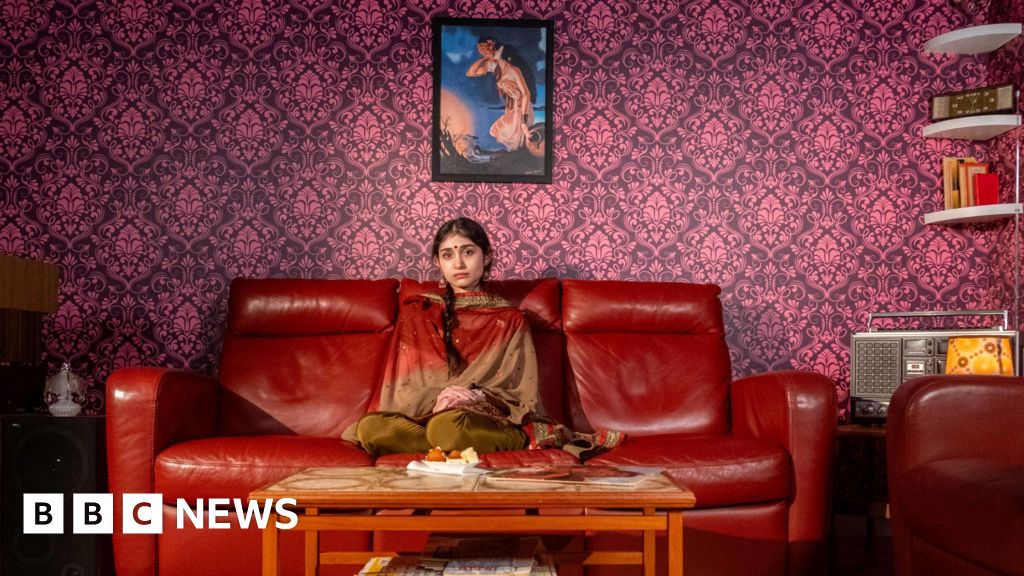
A new immersive exhibition inspired by the experiences of a Coventry family will explore the impact of South Asian heritage on modern Britain.
Stories That Made Us – Roots, Resilience, Representation, opens on 14 November at Herbert Art Gallery…

Joanne WrittleWest Midlands health correspondent, Sparkbrook
 BBC
BBCParents say a supervised toothbrushing programme in their children’s school is helped their…

9pm, U&Alibi
The US crime thriller in which former FBI profiler Rebecca Henderson (Melissa Roxburgh) returns to clean up after a secret underground prison explodes. A skin-crawling opening to episode two proves just how terrified…
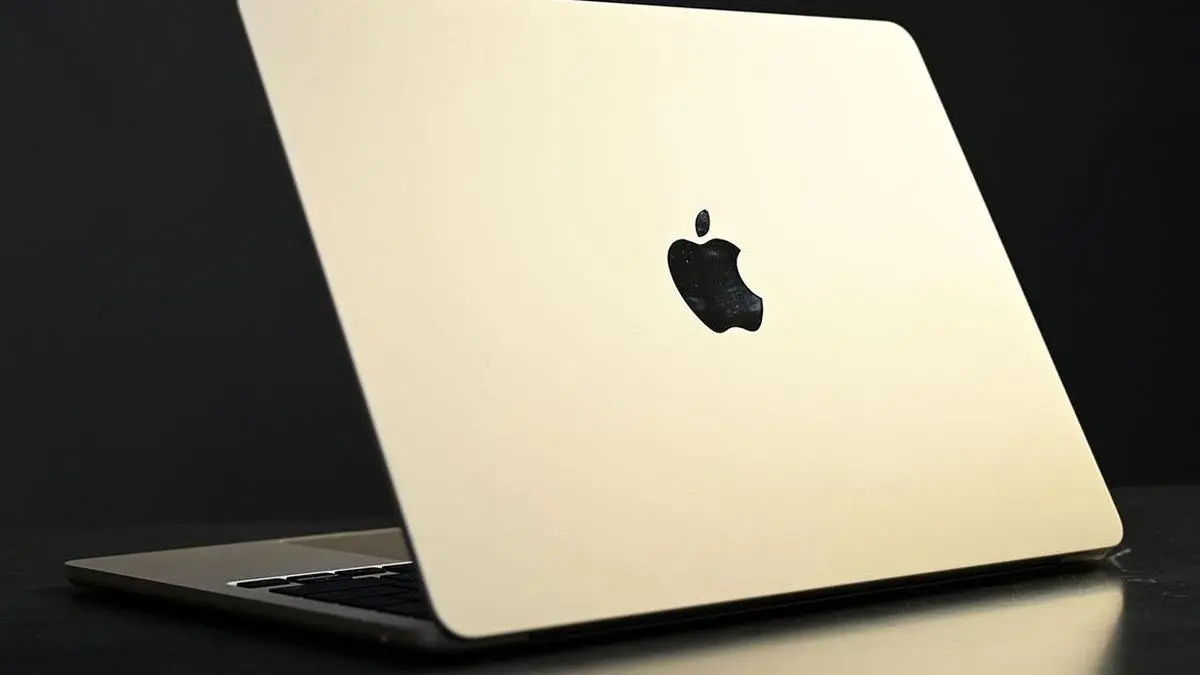
Apple Inc. is preparing to bring OLED screens to its MacBook Air, iPad Mini, and iPad Air lines, marking a major shift in display technology
| Photo Credit:
BIJOY GHOSH
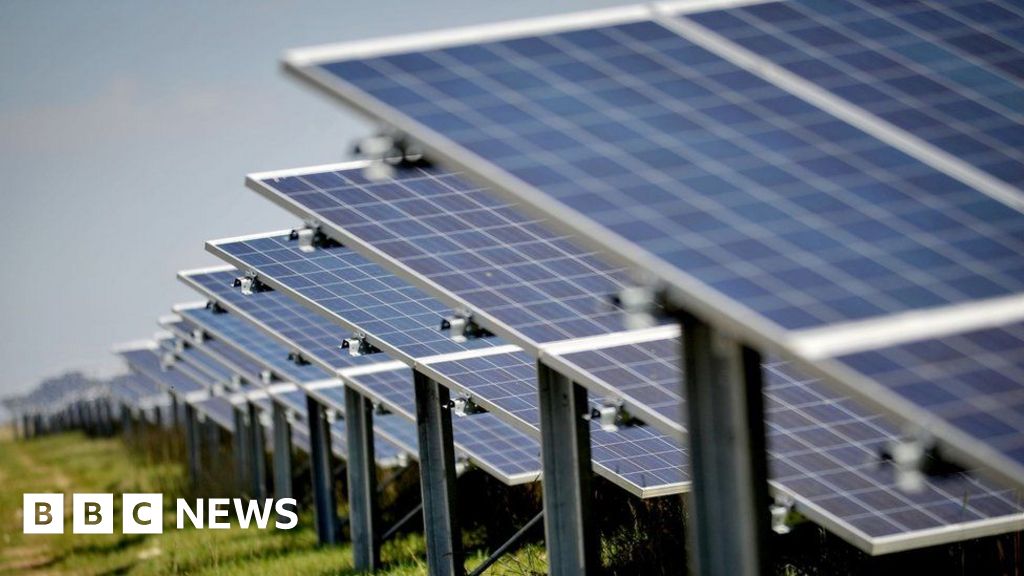
A solar farm built in the countryside could power more than 18,000 homes a year, a developer said.
Renewable Connections Developments wants to install panels on about 96 hectares (237 acres) of farmland off Treading Bank, near Gorefield in Cambridgeshire.
It said there was a “significant” need for more solar farms and after 40 years the land would be returned to agricultural use.
Plans for the Treading Bank Solar Farm have been submitted to Fenland District Council.
The planning documents stated the site would be linked directly to the electricity grid and said there were no proposals for a battery storage system on site.
The developer highlighted government targets to reduce emissions and that decarbonising the power sector “is integral to achieving this goal”, the Local Democracy Reporting Service said.
The plans said the farmland where the solar farm was proposed was mostly made up of a mix of “good quality” and “very good quality” agricultural land.
The developer said it had looked at other sites but concluded there were no other “suitable and available” places to build it that would make a “comparable contribution to renewable energy”.
A spokesperson wrote in the application: “At the end of the operational lifespan (circa 40 years), the solar panels and other infrastructure would be removed, and the site restored back to full agricultural use.”

Detecting dark matter, the invisible substance thought to keep galaxies intact, remains one of the most enduring mysteries in physics. Although it cannot be directly observed or touched, researchers suspect that dark matter leaves behind faint…
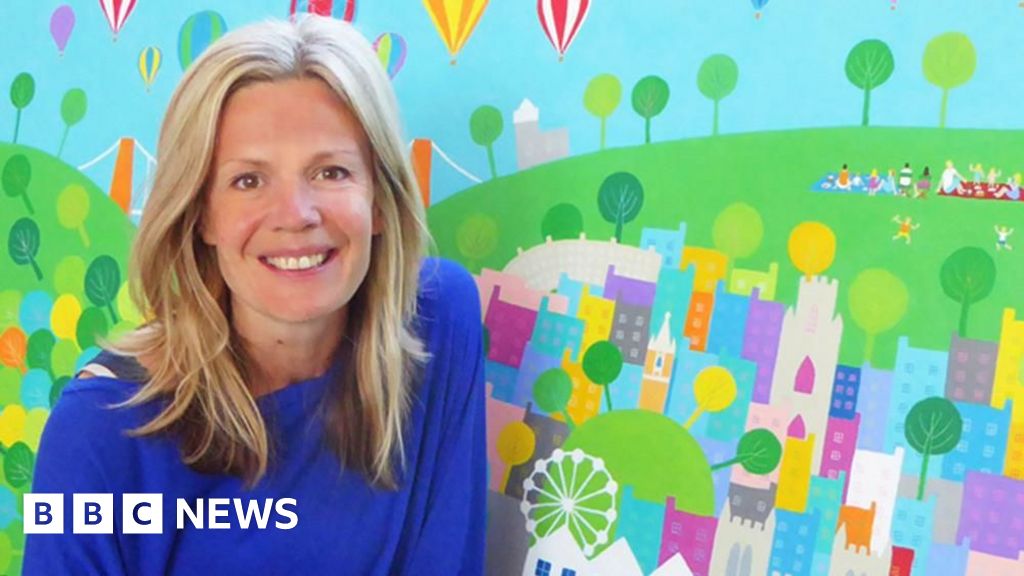
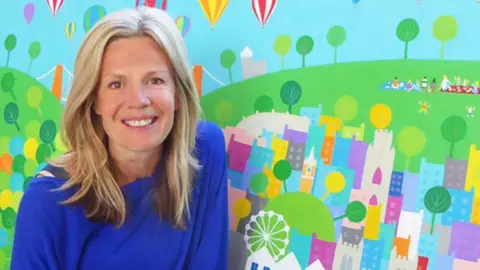 Jenny Urquhart
Jenny UrquhartAn artist has said it felt “infuriating” to discover “hundreds” of items featuring her work for sale on an online marketplace without her permission.
Jenny Urquhart, 49, from Bristol, decided to visit Temu after reading a recent BBC report about card firms complaining about rip-off greeting cards being available for sale on the website.
She said she found “pages and pages” of items using her designs, including men’s underwear, cushions and car mats. “You think of a gift item and I’d find one of my images printed on it,” added Mrs Urquhart.
A spokesperson for Temu said the company had immediately removed the listings in question when it was made aware of the situation.
Founded in Boston, Massachusetts, in 2022 but owned by Chinese e-commerce company PDD Holdings, Temu describes itself on its website as “honest, ethical and trustworthy”, offering low prices by shipping products direct from factories to consumers.
In April 2024, the BBC reported on a number of complaints against the company including one from a Kent-based illustrator who found copies of her designs on the site.
Mrs Urquhart said she had been prompted to look for unauthorised copies of her own work after reading that the company had agreed to work with the greeting card industry to remove copies from its site.
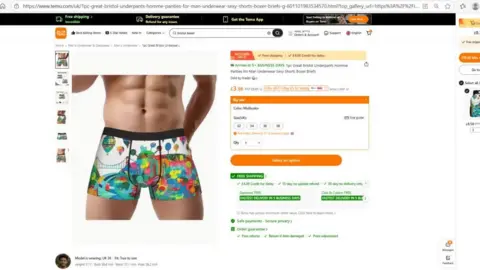 Temu
TemuAfter speaking about her case on BBC Breakfast, Mrs Urquhart said the majority of items featuring her work no longer appear on the website.
“It’s really hard at the moment to make money out of art because quite rightly buying art comes well below obviously, paying the mortgage, buying food, paying the bills,” she said.
“At the moment we’re really struggling. As soon as I get an order on my website I’m overjoyed – every single sale counts.
“To think there’s some multi-million pound business on the other side of the world just flogging your stuff. It’s completely out of your control and infuriating.”
A Temu spokesperson said the company had “immediately reviewed and removed” the listings when they were notified of them last week.
“Temu takes intellectual property rights seriously and requires all third-party sellers to comply with applicable laws and platform policies,” they said.
“We act promptly to remove infringing content once identified.”